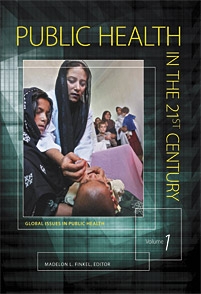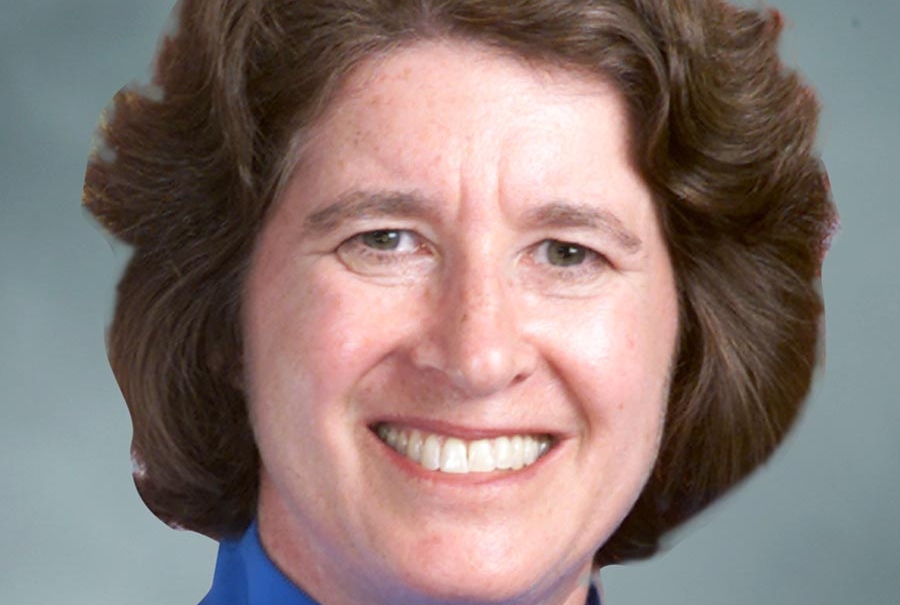
"These are public health issues that transcend boundaries, that are important economically, socially and politically, and in a sense give us an idea of how far we've come." – Dr. Madelon Finkel
With 57 chapters by more than 100 authors, "Public Health in the 21st Century" tackles a wide variety of topics, from STDs to food-borne infections, prostate cancer screening to palliative care.
Edited by Dr. Madelon Finkel, professor of clinical public health and director of the Office of Global Health Education at Weill Cornell Medical College, the three-volume work runs nearly 1,000 pages and explores a broad scope of global public health issues.
Each of the book's volumes has a theme: global population health, featuring topics on climate change, urbanization and nutrition in the developing world; disease management, which addresses HIV/AIDS, obesity and diabetes; and current issues in public health policy, such as human rights, palliative care and electronic medical records.
"I tried to include as many important public health topics as possible," Dr. Finkel said. "But I wanted to pick those topics that would resonate for anyone interested in public health, so I tried to focus on what are perceived to be key issues as we enter the second decade of the 21st century."
"Dr. Finkel has achieved a substantial feat in compiling this valuable three-volume set, with chapters written by leading scientists and thinkers in public health, both at Weill Cornell and elsewhere," said Dr. Alvin Mushlin, chairman of the Department of Public Health at Weill Cornell Medical College. "As we enter this new century, it is crucially important to understand the role that public health approaches can and should play to enhance health and well-being."
It was also important to Dr. Finkel to make sure the collection would be a real "Cornell effort," so she recruited as many colleagues as possible from both the Medical College and Cornell University in Ithaca to write chapters.
Dr. David J. Skorton, president of Cornell University, contributed an introduction, writing that the book "succeeds admirably in bringing together much of the broad field into one work. Readers from across the spectrum of public health concerns will find thought-provoking material of great value."
"Dr. Finkel's collection is much more than an exhaustive examination of a spectrum of public health issues; it is a look forward to what we as physicians and scientists should focus on in the years to come," Weill Cornell Medical College Dean Antonio M. Gotto Jr. said.
The set includes contributions by more than a dozen Weill Cornell faculty, including pharmacologist Dr. Marcus Reidenberg, professor of pharmacology, medicine and public health, on the WHO essential medicines program; ethicist Dr. Inmaculada de Melo-MartÃn, associate professor of public health, on genetic testing; and disaster response expert Dr. Nathaniel Hupert, professor medicine and public health, who collaborated with colleagues on a chapter on bioterror attacks. Dr. Finkel herself wrote chapters on prison health care and comparative health systems.
"These are public health issues that transcend boundaries, that are important economically, socially and politically, and in a sense give us an idea of how far we've come," Dr. Finkel said.
Dr. Gilbert Botvin, professor of psychology in both psychology and in public health; Dr. Carla Boutin-Foster, the Nanette Laitman Clinical Scholar in Public Health/Community Health and associate professor of medicine and public health; Dr. William Borden, the Nanette Laitman Clinical Scholar in Public Health/Prevention in Women's Health and associate professor of medicine and public health, also contributed chapters.
Ithaca-based faculty also participated, including atmospheric scientists writing on climate change, and researchers from the School of Industrial and Labor Relations' Employment and Disabilities Institute pondering public health considerations of people with disabilities.

